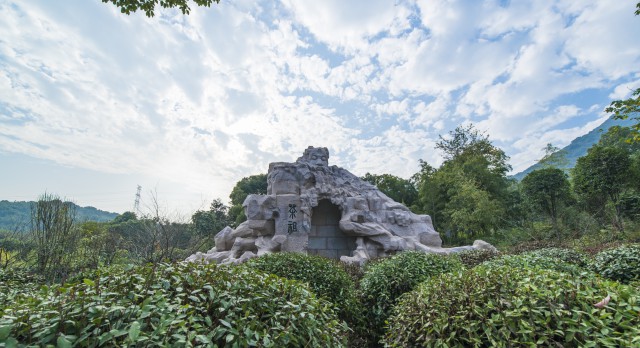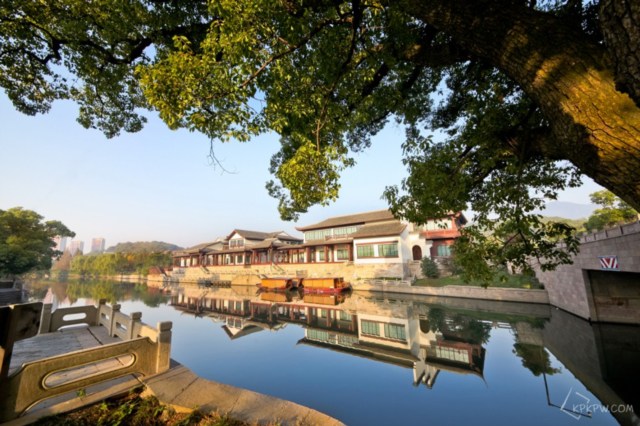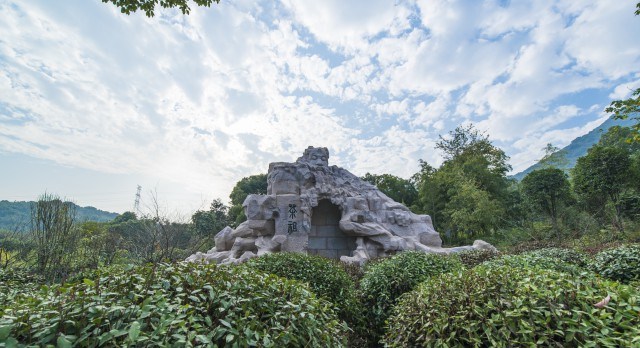Tea is the derivative of the Chinese culture, acontribution of China to the world. According to archaeological materials, teawas cultivated around Hangzhou Bay area at least 6 thousand years ago. Theearliest tea seeds in the world could date back to 8 thousand years ago, andwere unearthed at the opposite bank of the Qiantang River, south of the GaotingMountain, which proves that Hangzhou Bay area is the origin place of teaculture. Qu Fan, a poet in Qing Dynasty, wrote in his poem ‘Tea Seed’: ‘Xianglin Tea is history, Long Jing Tea prevails. Produced in a placethat looks at the west of the west city, it’s a famous delight in the eastcity. I had no idea the tea seed was selected half way up the hill, only thatthe tea is admired for its fame of high quality.’ Legend has it that theGaoting tea is the ancestor of all Hangzhou tea. Tea ancestor is the godworshiped by tea farmers, an ancient belief that dates back to when humanslived in forests. Ancient tea farmers believed that the tea trees wereinexhaustible fortune bestowed by the Tea Ancestor, who blesses the well-beingof their future generations. Therefore when picking tea leaves in early springeach year, the first picks would be offered to the Tea Ancestor, in order toshow gratitude and ask for blessings. A Tea Ancestor statue is built today onthe Gaoting Mountains for local tea farmers and tea drinkers to have a ritualsite when seeking ancient roots, to showcase the history and sacredness ofHangzhou Bay as the birthplace of tea culture. Tea Cave is the legendary siteof the Tea Ancestor in the ancient tea cultivating area.




